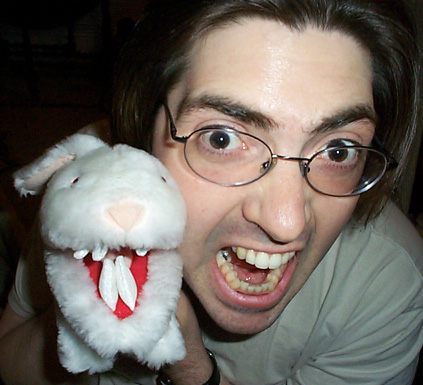The TV Set
The premise is that David Duchovny's character has a brother who committed suicide, and Mr. Duchovny believes the best way to honor the memory of his dearly departed is to pitch his personal life as a television situation comedy.
The film then chronicles how Duchovny's personal dramedy/character study slowly gets transformed into a full-on situation comedy complete with catch phrases and fart jokes. It then gets "funny" when Duchovny's character begins to suffer physical maladies brought on by the stress of having his home movies slowly and methodically turned into a Saturday Night Live sketch.
The idea of submitting something intimate as mass-consumption art is fundamentally a bad idea, but this avenue of thought is never considered or explored. Instead, the film asks us to root for Duchovny as he endures and suffers. It also asks us to laugh at his suffering - to both feel his torture and laugh all the way through the tears.
I assume that the film is striving for an absurdist comedy along the lines of the brilliant Brazil
At times, particularly when Duchovny is hobbling around on crutches, I thought that maybe the filmmakers were striving for a dark comedy where none of the characters are sympathetic and the humor comes from seeing horrible people do horrible things to each other until everyone is dead and gone, in a sense getting their comeuppance. But this doesn't really work, either, because the story is structured around you rooting for the little guy with the big dream and then chuckling at the horror when he realizes that the big personal intimate dream doesn't penetrate a particular demographic.
It also hurts the film that the main character is also the most pathetic. The "villain" of the piece, Sigourney Weaver, not only has the funniest and most quotable lines, she is the only person in the entire production who genuinely enjoys her work. Yes, she is supposed to be the source of all evil, but she single-handedly commands the only bright and funny moments in an otherwise dreary comedy.
Ultimately, the film comes up short because it is not as subversive, intelligent, or satirical as it could be. If it were really daring, it would have made the Sigourney Weaver character the focus of the film all the while actively encouraging the audience to root for her and her sassy attitude as she slowly, methodically, and single-handedly dismantles entire swaths of people to achieve her dreams of a larger market share. Because we are in a nation that tortures, we should be relating to the people with the power, not the victims.
